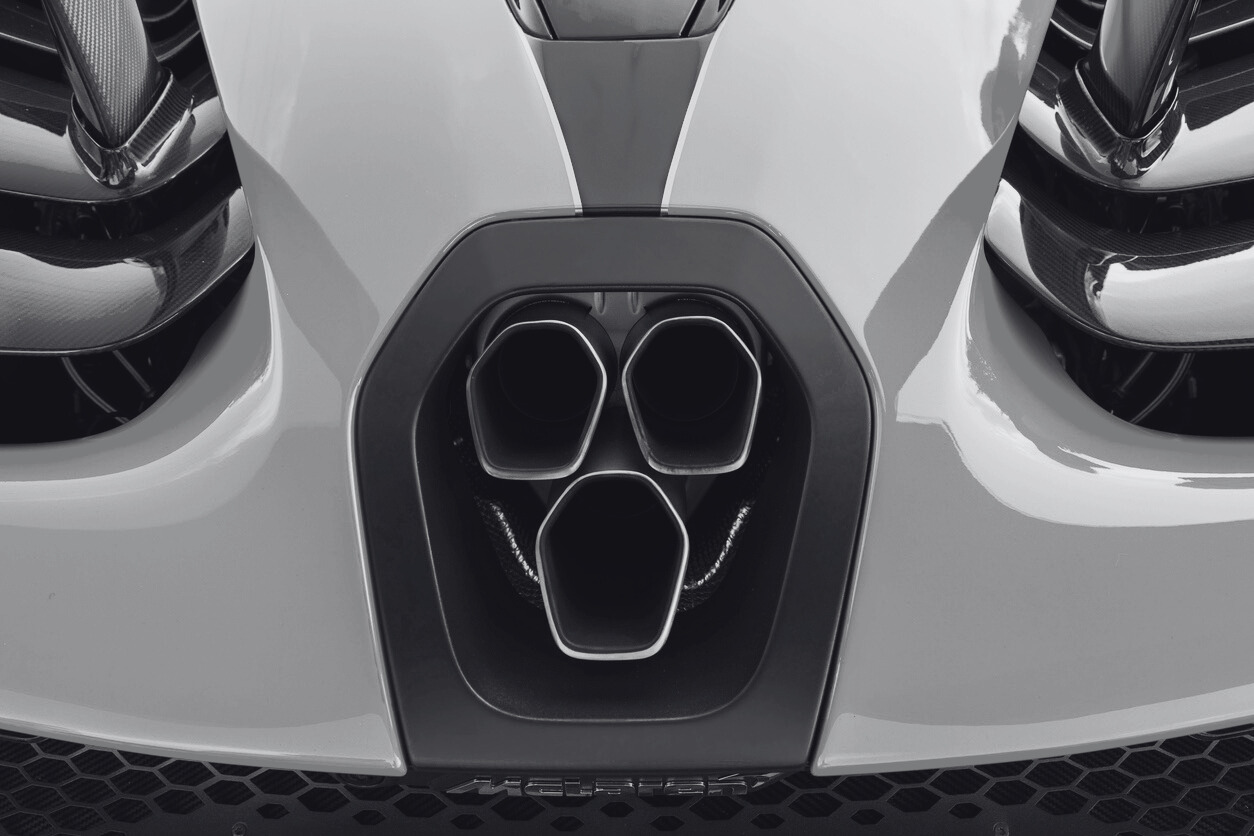This week marks the start of the high-profile legal battle between motorsport giant McLaren and four-time IndyCar champion Alex Palou.
Solicitor Sophie Warner provides an overview of the key events leading to this claim and highlights important contractual takeaways for our clients.
Facts
The Claimants are McLaren Indy LLC and McLaren Racing Ltd. McLaren Racing operates and manages the McLaren Formula One team and, via McLaren Indy, the Arrow McLaren IndyCar team. IndyCar is the United States’ most elite and high-level open-wheel racing series.
The Defendants are Alex Palou Montalbo (a four-time IndyCar champion), ALPA Racing USA LLC (the company through which Alex Palou provides personal services as a professional racing driver and of which Alex Palou is a shareholder and director) and Palou Motorsport SL (a racing team that Alex Palou holds a 60% shareholding in).
The Claimants and Defendants contracted in October 2022 to secure Alex Palou’s services as the driver of McLaren Indy’s No.6 car for the 2024 – 2026 IndyCar seasons. The contracts of significance are:
- The Driving Agreement – which governed the terms of Alex Palou’s role as a McLaren IndyCar driver and the McLaren Formula One reserve driver.
- The Promotions Agreement – provided McLaren Indy the worldwide right to “exploit the name, fame, reputation and likeness” of Alex Palou.
- The Link Agreement – clarified the relationship between the Driving and Promotions Agreements. It stated that if either McLaren company terminated one of these Agreements, the other would automatically terminate as well, as though it too had been breached. This arrangement gave the McLaren companies the right to recover from ALPA Racing any losses or damages resulting from the termination, treating both Agreements as if they were a singular Agreement.
Alex Palou and McLaren companies also entered into an Undertaking Letter. Here, Palou provided personal warranties and guarantees regarding ALPA Racing’s existing and future contractual IndyCar obligations, its compliance with the terms in the McLaren contracts and his willingness to perform those obligations in its place. Most importantly, Alex Palou provided a personal guarantee that if ALPA Racing defaulted on its contractual obligations, he would “on demand pay and discharge all sums of money and liability which may be due, owing or incurred or unpaid by [ALPA Racing] pursuant to the Agreement”.
In August 2023, Alex Palou’s lawyers informed McLaren that he had contracted with Chip Ganassi Racing (“CGR”) to continue racing for them for the 2024 – 2026 IndyCar seasons in breach of the McLaren contracts. They asserted that McLaren had represented and/or promised that Palou would act as a full-time Formula One driver for McLaren Racing rather than merely a reserve and that there had been a loss of trust and confidence that they “genuinely intended to support his ambition to race in the Formula One Series”, likely after the signing of Oscar Piastri. In-house lawyers for McLaren called this assertion of a promise of a full-time Formula One seat “baseless”.
Alex Palou has admitted breach of contract, so the Court will be assessing quantum. The c.$20m claimed relates to (among other things): loss of contractual sponsorship fees, losses arising from the renegotiation of sponsorship agreements to mitigate losses, driver salaries, loss of predicted prize money, a sign-on bonus paid to Palou Motorsport and monies Alex Palou paid to test McLaren Racing’s previous Formula One cars which could have otherwise been sold for more to other candidates. However, there is more at stake for the parties than just the financials. Alex Palou is keen to continue recovering his reputation and focus on racing. Conversely, McLaren will undoubtedly want to send a message to the market and their sponsors that they will not take breaches of contract by prospective drivers lightly.
The salient learning points to note are as follows:
The Importance Of Capturing Parties’ Intentions Explicitly In Contracts
Alex Palou’s decision to contract with McLaren was founded in his desire to become a full-time Formula One driver, and his claimed loss of trust and confidence in this being realised was the catalyst for his decision to breach his contracts.
The opposing stances about whether a full-time Formula One seat was promised highlights how imperative it is for parties to ensure their intentions are expressly provided for in contracts, particularly where there are entire agreement clauses voiding the legal impact of anything outside the contract’s terms. Had McLaren’s position on Palou’s future in Formula One been clear during negotiations he may not have contracted with them, and had any such promise of a full-time seat been contained in the contract’s terms perhaps Alex Palou could have brought a claim against McLaren instead.
The Impact Of Personal Guarantees
A limited Company, like ALPA Racing’s LLC status, is a separate legal entity designed to protect its members from incurring personal liability for the company’s debts or contractual obligations. The veil shields the owners’ personal assets from creditors as their liability is limited only to the sum they have contributed to the company, regardless of whether the company’s liability exceeds this. Personal liability may only be established in exceptional circumstances, such as in cases of fraud and breach of trust.
By providing personal guarantees, Alex Palou made himself personally liable for any damages owed by ALPA Racing to the McLaren companies. These now far exceed what his liability would have been without the Undertaking Letter. Personal guarantees should be avoided at all costs, especially in scenarios where the debt to be repaid could be sizeable, as it lifts the veil and means creditors can seize the guarantor’s personal assets until the debt is discharged or the guarantor goes bankrupt.
The Role Of Indemnities
McLaren has asserted that CGR have agreed to pay any sums Alex Palou is found liable for.
An individual opening themselves up to legal liability by leaving one company at the request or benefit of another in the same field could request that their new employer indemnifies them in case of any legal action. The new employer would agree to bear the cost of any such litigation arising from the breach of contract.
Approval of this request is at the new employer’s discretion as agreeing to provide an indemnity on those terms could open the new employer up to legal liability if they are found to have induced the employee to breach any non-complete restrictive covenants in their contract. This decision will likely turn on whether the risk is worth the reward. It is easy to see why CGR might have deemed indemnifying Alex Palou as worth the risk, especially if only a portion of the damages claimed by the McLaren companies are awarded: he earns CGR extensive prizemoney, sponsorship money and promotions revenue.
The Significance Of Mitigation And Remoteness
The value of McLaren’s claim is considerable, and it is contested in its entirety. The figures have been revised several times since the claim was issued. The three fundamental ways Palou’s legal team are challenging the figures are:
- A Claimant must offset any losses arising from the breach of contract against any benefit to prevent a double recovery: Whilst McLaren has offset their losses against some monetary gains (a saving of $9m on Alex Palou’s salary, $1.25m paid by Nolan Seigel to drive the No.6 Arrow McLaren for a portion of the 2025 season and c.$1m paid by Ryō Hirakawa to test previous McLaren Formula One cars), the matter is not over. Representations were made in court on 29 September 2025 about the $18m Nolan Seigel has paid to McLaren to drive in IndyCar for the rest of his contractual term. Alex Palou’s legal team sought permission to put forward an argument that this gain eliminates McLaren’s losses almost entirely. Unsurprisingly, McLaren opposed this.
- A Claimant has a duty mitigate their losses. Alex Palou’s teams states that: McLaren did not mitigate their losses when renegotiating key sponsorship agreements at a net loss of millions of dollars, especially when the terms of those were not conditional upon Palou forming part of their driver roster. They could have simply held the sponsors to the original terms of their binding contracts. Where contractual uplift monies were dependent upon the team having ‘A level’ drivers driving McLaren Indy’s cars, they did not take all reasonable steps to procure a replacement of this quality to mitigate their losses (i.e. enquiring about the availability of A level drivers from other championships).
- The damages claimed cannot be too remote. The loss must be (1) not unlikely, (2) in the contemplation of the parties and (3) foreseeable at the date the contract was entered into: Alex Palou’s legal team asserts that several of the heads of claim, such as renegotiating the terms of binding sponsorship agreements and increased salaries for other drivers, cannot reasonably have been contemplated at the time the contracts were entered into as likely outcomes if Palou breached his contract.
This trial is due to be heard over a number of weeks, with expert evidence being given from key motorsport names like Otmar Szafnauer, Claire Williams and Zak Brown. We will be following the case and will update you upon judgment.







